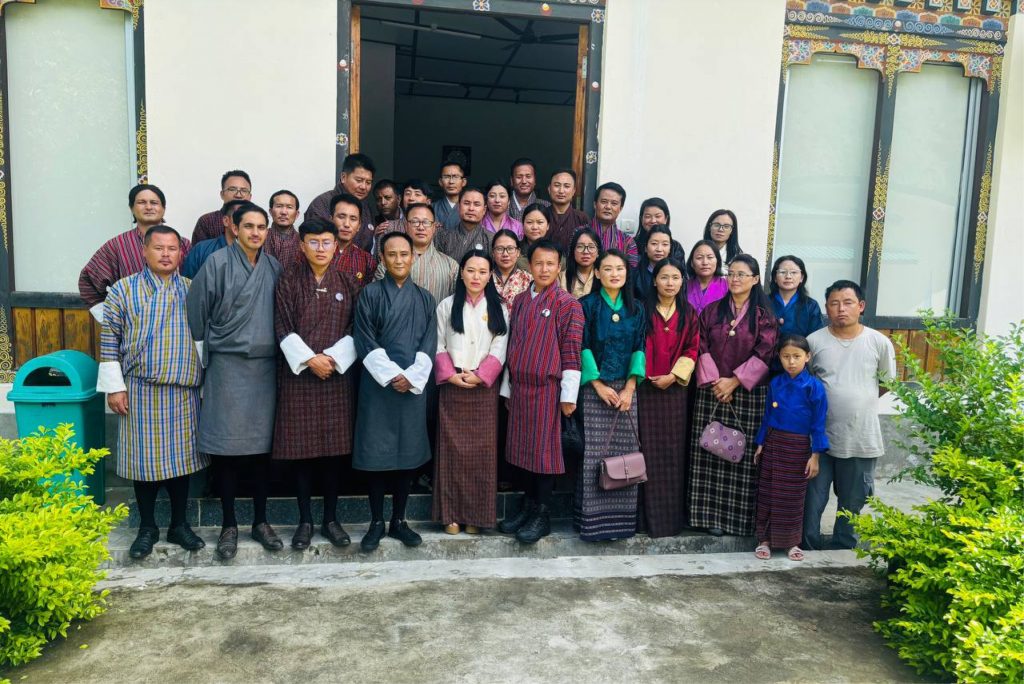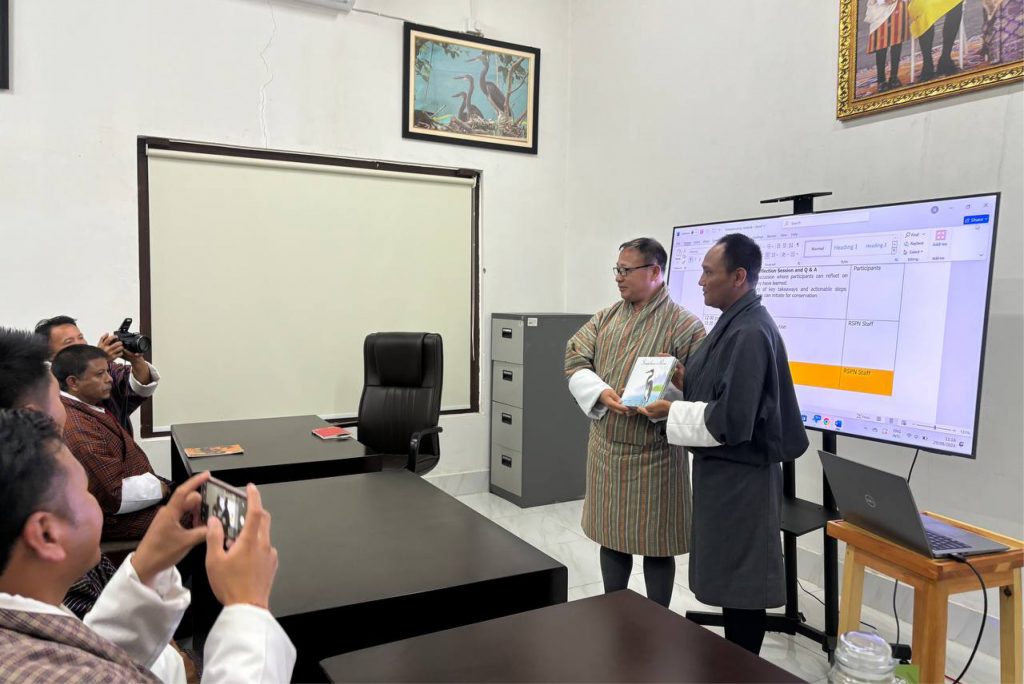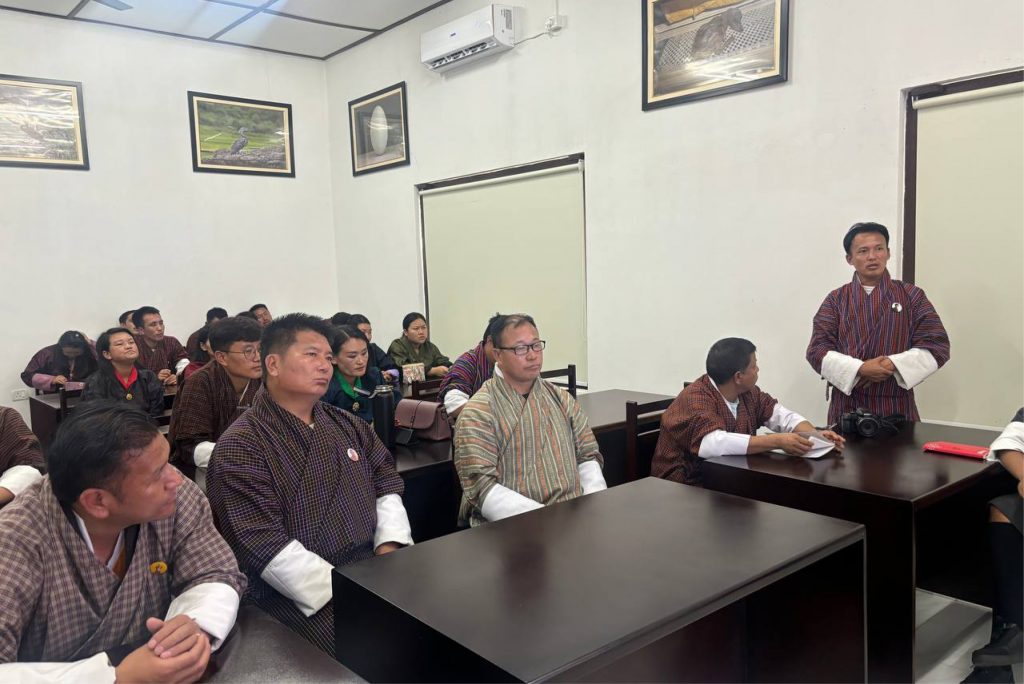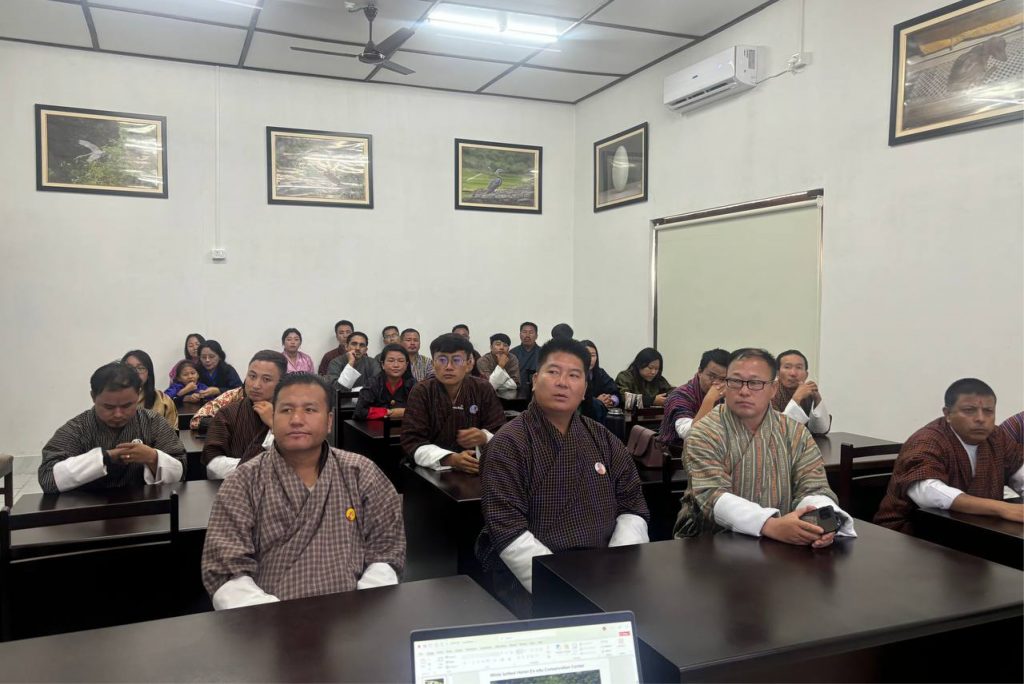The Royal Society for the Protection of Nature (RSPN) hosted an advocacy program for Tsirangtoe central school staff and community on September 29th as part of a conservation initiative focused on the White-bellied Heron (WBH). People often question whether there is benefit of conserving wildlife such as WBH. In order to advocate on the importance of conserving the WBH and to discuss the means to collaboratively enhance the conservation effort. The White-bellied Heron Conservation Center team member made a guided tour for the participants and presented on the ecology and some of the conservation approaches RSPN applies in reviving and sustaining the low population of WBH.
The program began with a presentation on RSPN roles and the White- bellied Heron ecology, the benefits of conserving WBH (ecological, socioeconomic), and means to mitigate the threats to WBH. Participants were divided into two groups, they were introduced to captive breeding facilities of WBH and explained about the standard protocol involved in breeding, rearing and feeding WBH. In between the session participants were encouraged strongly to raise questions and doubts, allowing them to voice their thoughts and curiosity about the WBH conservation.
The advocacy program successfully met its objectives of raising awareness and fostering a sense of responsibility towards environmental conservation. The participants saw mixed groups of audience with presence of both the gender. In total there were 13 numbers of female participants and 19 numbers of male participants from the community.




Copyright © 2026 RSPN All Rights Reserved